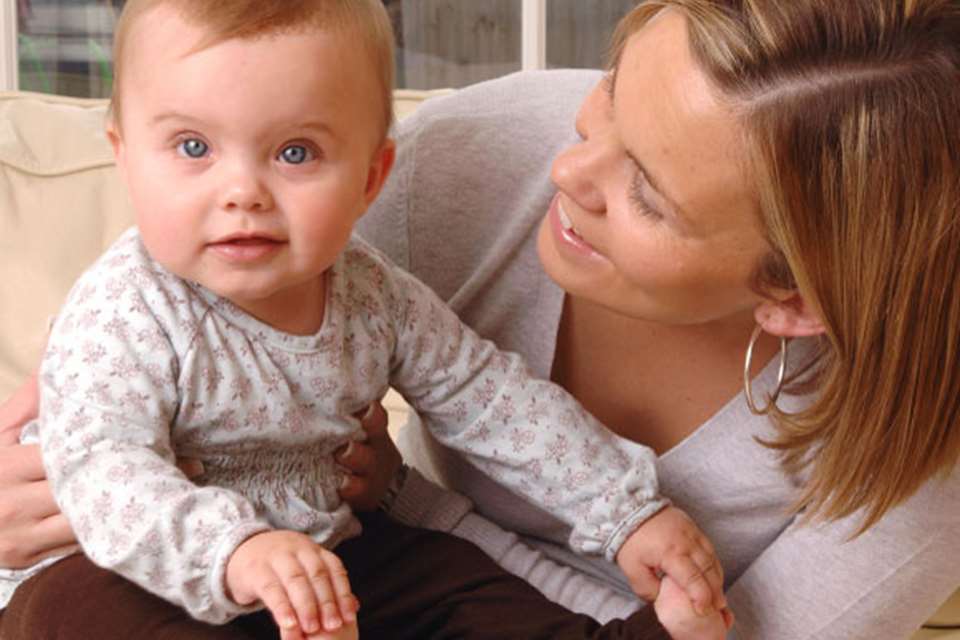Childminders - Opposition to agencies persists
Ruth Thomson
Monday, June 16, 2014
The Government's approach is only fuelling concerns in the sector, says Pat Gordon-Smith.

Ten years ago, when my younger son was very new, I used to pass the same childminder every morning as I took my elder son to school and she led a pair of three-year-old charges to nursery. We would nod our hellos, as you do, but she would carry on her laughing conversation with the children or chase them squealing across the grass.
When I eventually needed childcare for that babe, she was the person I wanted. I felt I had seen daily evidence of a professional yet loving mutual interest between this childminder and the children in her care, and my feeling was confirmed by childminder friends who knew her. Over the next four years she proved my instinct right again and again.
My story is not unusual. 'Parents' choice of a childminder tends to be more informal than when they choose a nursery,' says campaigning childminder Penny Webb. And, says Yvette Oliver-Mighten, chief executive of @Home Childcare - an organisation taking part in the childminder agency trials - this community-driven formula will remain once agencies are introduced. 'Parents will continue to choose childminders through word of mouth, just as they always have done,' she says.
And yet in a few throwaway words during the launch of Ofsted's first early years annual report, Ofsted director Sir Michael Wilshaw dismissed the reliance on local knowledge as a last resort - not fit for use by poor parents who don't know their stuff - and recommended that provision for two-year-olds in disadvantaged neighbourhoods should involve education for school readiness, preferably within schools.
'That's not just a criticism of childminders and wider early childhood provision; it's a criticism of parents too,' says Neil Leitch, chief executive of the Pre-school Learning Alliance (PLA). 'It feels as if the work of childminders has been characterised as inadequate by nature,' he adds. 'It's very hard to have any other view after a year of criticism about childminders' levels of training and quality, and the determination to introduce a different model of managing provision.'
It's also hard to find anyone outside Government with good things to say about the childminder agencies that are to be introduced in September under the 2014 Children and Families Act.
Childminders' unhappiness about Government policy - and its attitudes towards them - is reflected in recent figures. New PLA research found that 86 per cent of childminders did not intend to join an agency, while the latest Ofsted figures reported a 2,149 drop in childminder figures in the six months to 31 March 2014 (see information column).
Last December, the Professional Association for Childcare and Early Years (PACEY), the leading organisation supporting childminders, refused to advise the Government on its agency plans following a survey of members in which 77 per cent believed agencies would lower standards of care. Speaking now, PACEY chief executive Liz Bayram says the organisation 'remains concerned that childminder agencies will not focus enough on the quality of care children receive or support strong partnerships between parents and childminders'.
Dr Eva Lloyd, co-director of the International Centre for the Study of the Mixed Economy of Childcare, also has reservations: 'There is no evidence that agencies have brought about better quality in the Netherlands or that they have increased the number of childminders.'
She explains that an apparent rise in Dutch numbers was due to legislation enabling grandparents to register as paid childminders, not due to agencies. 'I can't see that agencies will encourage new childminders here either. There's been such bad press, encouraged by lack of information, that it's hardly going to attract new people,' she adds.
There is most certainly a dearth of information. Ofsted's consultation into inspecting childminder agencies, which closed on 21 March, made no proposals for agencies' future development because 'there is no current knowledge about the likely size, scale and scope of the sector'. And while the Department for Education's (DfE) new agency consultation has finally provided proposals for contact between childminders and their agencies, it continues to insist that 'the Government does not want to prescribe a business model for agencies'.
This may be good for the potential businesses, but it leaves childminders and parents in the dark as to how agencies may look, especially as there is nothing forthcoming about the ongoing trials: the Foundation Years' case study web pages (www.foundationyears.org.uk) are all but empty and even the identity of the evaluating organisation, Ecorys, took some effort to discover. The organisation is unwilling to make any comment as to progress.
Unsurprisingly, the vacuum is being filled with grim predictions. 'What annoys me about the agencies is that anyone will be able to set up - even if they have no experience or knowledge of childcare,' says childminder Charmaine Newman, who chairs the Tonbridge Childminding Group. 'They won't know what training we need.'
Penny Webb warns that Ofsted's plans to inspect just a sample of each agency's childminders means that 'the least successful childminder on the agency's books could be inspected, with a knock-on impact to the grade of the agency and all their childminders'.
These are valid concerns extrapolated from the little information on offer, and so far the DfE has offered nothing to confirm or deny them.
And yet there is enthusiasm out there from organisations involved in the agency trials that could easily be shared openly. 'Our trial is helping us to understand how to provide the right support for our childminders,' says the director of one organisation (anonymous only due to lack of time for clearance; let's call it AT). 'We work across a large area in which childminders can feel isolated and as if nobody is listening to them, so we're developing a scheme to address that, perhaps through remote learning and a website.'
South Gloucestershire Council has done similar work during its trial, developing 'web-based training and resource materials that childminders can access by computer, tablet or mobile'. It acknowledges that childminders were apprehensive at the start, but 'once they understood more about what we were trying to achieve ... they could see the benefits of continuing to work with us to develop smarter ways to deliver the local authority services they value.'
AT's director says, 'The trial is making us learn quickly how to think more flexibly, although we'd be doing the work without it.'
@Home Childcare's Yvette Oliver-Mighten agrees. 'Our model for working with childminders was established back in 2012 and childminders have been buying our services ever since.' The @Home Childcare agency model provides each childminder with a mentor who makes initial visits and provides personal support during business start-up and beyond.
Ms Oliver-Mighten addresses Ms Webb's concern over agency childminders being negatively affected by spot-check inspections. 'From the information I have received from participating in the agency trial, agencies will be expected to have a range of childminders on their books. Agencies are meant to improve quality across the board and will not be judged good or outstanding themselves unless they can show they are improving the quality of all childminders.'
This might have been a good-news story for the regulator, but when asked, Ofsted failed to either confirm or deny it. So who knows? Same old same old.
The Government is certainly not making it easy on the trials or for future agencies. Ms Oliver-Mighten says that lack of core funding is a problem. 'It might be easier if you're a big business or a local authority, but it's a struggle for a small business like us.'
AT's director agrees and adds, 'A proper strategic approach to the trial, with proper models developed over time, would have been preferable. But we can't sit around moaning about the Government's approach. Agencies are happening; better to do something positive.'
While this uplifting view is certainly welcome amid the prevailing gloom, another organisation that began a trial explains that it pulled out at least partly because of 'considerable concern about the proposals among local childminders stemming from anxieties about the costs to individual childminders and lack of perceived benefits.'
Not the most optimistic note on which to end. But when even a determined attempt to establish a more positive perspective on the introduction of agencies keeps tripping up against official silences and unqualified commands, it can be no surprise that there is so little confidence in the eventual agencies being of benefit to childminders and families.
When the refusal to engage in conversation with the sector or pay any attention to research and advice can lead Dr Lloyd to speculate that 'the whole agency issue may well just go away because there's no evidence-based argument for the agencies', it can be no surprise that Mr Leitch says he 'certainly hopes' that will be the case.
And when Sir Michael Wilshaw, head of the organisation that will regulate all childminders, whether as independents or through an agency, perceives no benefit in small, home-based settings for children who are most likely to need attachment and deep individualised care, it is hard to be confident that inspections will be fair or to find any reflection of young children's real, live relationships in official pronouncements. Where is the evidence of loving, mutual interest in the race for school readiness? Where are the laughing conversations, where the games of chase?
DEAR SIR MICHAEL ...
FROM CHILDMINDER 1
'Jack came to me at age two. He couldn't cope with more than four people at any time - one adult, himself and two other children.
'At times of difficulty, he'd remove himself by going under the table.
'He attended a private pre-school setting part time, and this solution wasn't allowed there. They weren't unkind - they would coax him out, saying things like 'it's not nice under the table; it's dirty' - but they could not accept it as a good solution for what he needed.'
FROM CHILDMINDER 2
'Adam had very significant needs. He came from a disturbed environment in which he experienced domestic violence and alcohol abuse. None of his needs were being met. He wasn't loved and wasn't encouraged.
'At age three, when he came to me, his only toy was a Playstation. He had no idea how to play, but he soon latched on to my ten-year-old son, who helped him learn to play. I wouldn't say that Adam blossomed fully in the four years he was with me, but he certainly benefited for experiencing loving family life.'
MORE INFORMATION
- Consultation - 'Inspecting childminder agencies', www.ofsted.gov.uk/resources/ inspecting-childminder-agencies-consultation-document
- Consultation report, www.ofsted.gov.uk/resources/childminder-agency-inspection-consultation-report-responses-consultation
- 'Survey reveals early years sector's opposition to Government reforms' and 'Childminder numbers show further exodus'












